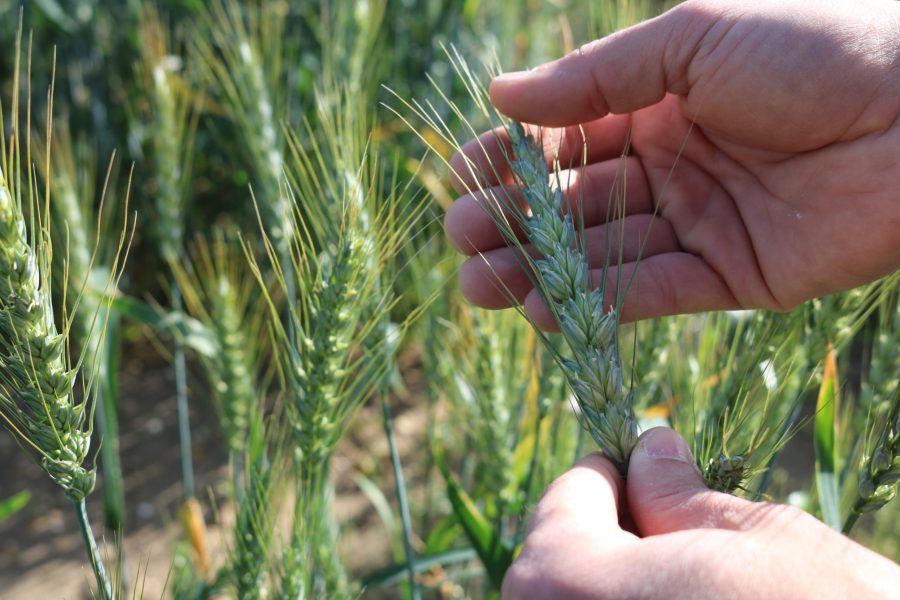A project bringing trials of precision-bred cereal crops onto commercial farms for the first time in Europe is now underway.
Trial plots of a precision-bred wheat variety, which could lead to a ‘greener’ farming system have now been harvested, marking the start of a groundbreaking new project.
PROBITY
PROBITY – A Platform to Rate Organisms Bred for Improved Traits and Yield – brings farmers, scientists and food manufacturers together to trial the production and processing of precision-bred crops to accelerate understanding of their value to sustainable food and farming.
Led by the British On-Farm Innovation Network (BOFIN), it is a three-year £2.2M multi-partner project funded by Defra’s Farming Innovation Programme, which is delivered by Innovate UK.
Farmers are encouraged to get involved with the project by joining the Sequence Circle at probityproject.co.uk – a new community set up to lead discussion on precision-bred crops and help steer the project.
Precision-bred crops can be created through gene editing, a widely used technology that enables scientists to make changes to plant DNA, like those that occur naturally, but introduced in a precise, targeted manner. Gene editing speeds up the process of breeding more productive, nutritional and sustainable crop varieties.
Precision Breeding Act
The Genetic Technology (Precision Breeding) Act 2023 allowed for the release and marketing of certain gene-edited plants. This currently makes England the only country in Europe where this novel material can be grown in farmers’ fields.
The seed harvested from plots at the John Innes Centre near Norwich will be multiplied up during 2025 to enable farmers in England to grow trials of the crop the following year. Two further cereal varieties are being grown in glasshouses at Rothamsted Research, and once harvested this autumn, will also be multiplied up to be trialled on farms.
The three varieties will be grown on commercial farms and subjected to testing and scrutiny by farmers, scientists and food manufacturers to establish their potential.
The three cereal varieties in the project are:
- A wheat with superior baking, toasting and processing properties
- A barley making high lipid, high energy forage aimed at lowering livestock methane emissions
- A wheat with a bigger bolder grain size promising a step change in productivity.
Tom Allen-Stevens, Oxfordshire farmer and founder of BOFIN says this is an important project for farming and food production in this country. “We have to produce more nutritious food with fewer resources and with less impact on the environment.
“Scientists have been developing new crop varieties that could help us to rise to that challenge. This project will bring those varieties from the laboratory to farmers’ fields where we can fully assess their potential, explore barriers to their adoption and pave the way for future innovation.”
Professor Nigel Halford, technical lead of PROBITY and scientist at Rothamsted Research who developed the healthier wheat line says: “It’s tremendously important that we grow these varieties on farms so that farmers and food manufacturers can see the benefits and want to use them, and that consumers can be reassured that they’re no different in practical terms from other varieties of wheat.”
For more information on the project visit probityproject.co.uk.




